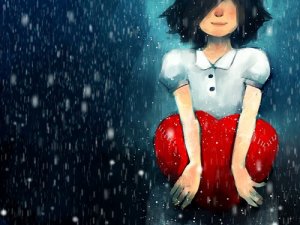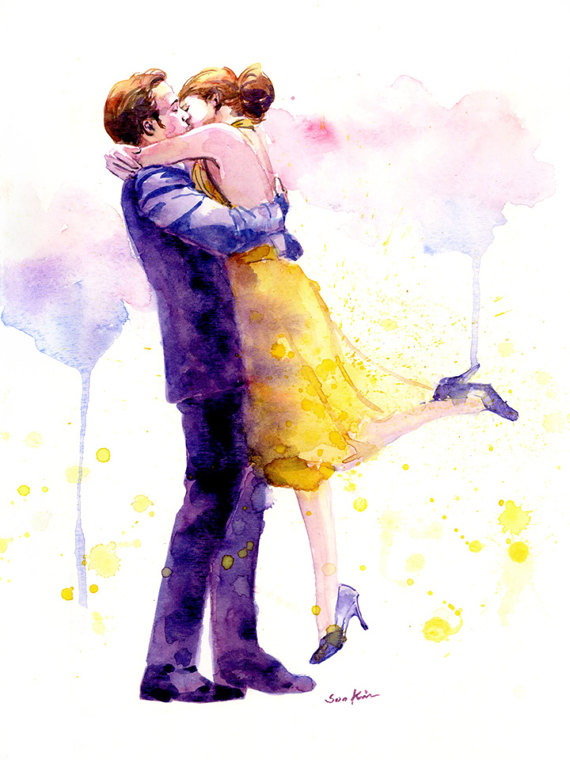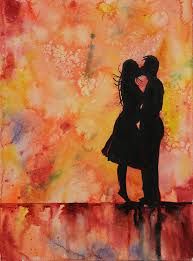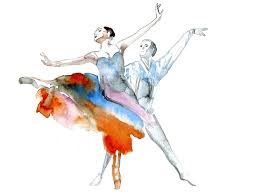What Is Love?

What is love? We all pretty much know it is a feeling or an emotion we experience at some point throughout our lives. Nevertheless, beyond this, we all have certain conceptions about how love is supposed to be.
However, love is far from being a singular concept, nor does it have a restricted definition. We must feel free to fall for whoever turns us into the best versions of ourselves. Although we usually don’t accomplish this, due to many different reasons.
What is love?
Many are the songs which try to explain what love is, or at least reflect what this feeling produces for us. These songs talk about the words the other person must say to us if they feel it or not. They talk about how it must feel if the other person loves us back or not.
“Because love is a crazy child, who returned today”
If we have been previously or we are currently in love, we know first-hand what it feels like. Yet, we can’t express it out loud as a definition which covers all the nuances. And that is precisely the enigma and magic of love, that it is neither measurable nor optional.
Most of the time, it is love itself that chooses us, before we’ve even noticed it. The problem arises when that authentic and pure feeling chooses us, but it catches us staring in another direction. Also, if we feel it for someone who is “not our type”. So, what then?

When love invades us: how do we fall in love?
We are aware that it is not a purely romantic subject when we affirm some couples “have chemistry”, that other couples “aren’t a good match” or that “we have run out of love”. These sentences prove that we do know there is a certain biological or physiological component. But these sentences also hide notions about how our culture or social influence intervenes in the way we love others.
Love from psychology’s point of view
From a purely psychological point of view, love emerges from an affective and sexual necessity. However, it is the social environment, culture and the historical era we live in which play a fundamental role in how we fall in love and who we do it with. Yes, it is a fact that if we had been born or grew up in a different place our “prototype for a perfect mate” would be completely different.
The way society modulates and defines what love is — the different roles one can play in a romantic relationship, and the best way to “procreate and perpetuate our genetic code” — this all causes the ideas we have about it to change.
“We aim our rod for the fishes we find familiar”. However, we are letting valuable fish go by due to fear. Fear of what? Fear of the unknown, because we don’t have any previous experience to serve as a point of reference. Nor do we have a script to follow when it comes time to conceive that person as our significant other. We can even be afraid of the public judgment we assume we’re going to be subject to if the person we’re in love with becomes known.

Prejudice kills love
What happens if you’re already forty years old and still get excited by the idea of pure love? Absolutely nothing happens. Surely, people will label you as naive, they might make fun of you and tell you to be more realistic. But let’s wait a second: that is your reality. It is a complete mistake to deny who you are or what you feel because of other people’s prejudice.
Historically, the way we should interact with the opposite sex has been strongly categorized. And yes, I say “with the opposite sex” since the LGBT community is sadly still omitted or treated as a taboo when it comes to love.
What implications does this have? Categorizing older adults as helpless beings just as it happens with people who have a disability, the LGBT community as “degenerates”, among others things, leads to the denial of their affective and sexual necessities. That way, they are also not considered feasible objects of desire.
A person who is psychologically open, tolerant and has decided to share their life with a “non prototypical” romantic partner has many more possibilities of finding that true love. And this is because, by loving ourselves without taboos and loving our peers as they are, without prejudice or reserves, our self-esteem, hope and well-being increase.

The true meaning of love
It happens to all of us. The silhouette of two lesbian women, a white man with a black woman, a janitor and an important lawyer or a young writer and an older man, none of these examples appear anywhere in the media as the image of the “perfect couple”.
To love is the greatest act of bravery
Not long ago it was presented in the media how a man with multiple sclerosis saw his baby being born while he was condemned to his bed. This moves us all, excites us all. Few of us have what it takes to fight next to him every day.
We live in a culture ruled by minimum effort and appearances. We are all extremely selfish.
Love involves a great commitment, but without losing your own identity. It is all about sharing, learning, discovering… we usually say there are a lot of fish in the sea after someone ends a relationship. I’ll tell you something else, there are plenty of seas with plenty of fish. Love understands no language, skin color, ideology, age or gender. Let’s not be the ones who push love away due to our prejudice or our fears.
So, if we have not found our “Prince charming” or “The frog didn’t turn into a prince”, if we believe “no one could ever understand women” or “women are too complicated”… then it might be you who is adopting the wrong perspective. Let’s open our minds and just live. Because love will find us in the least expected place.
We will only know the true meaning of caring when, without prejudice or scripts, life itself teaches us.
What is love? We all pretty much know it is a feeling or an emotion we experience at some point throughout our lives. Nevertheless, beyond this, we all have certain conceptions about how love is supposed to be.
However, love is far from being a singular concept, nor does it have a restricted definition. We must feel free to fall for whoever turns us into the best versions of ourselves. Although we usually don’t accomplish this, due to many different reasons.
What is love?
Many are the songs which try to explain what love is, or at least reflect what this feeling produces for us. These songs talk about the words the other person must say to us if they feel it or not. They talk about how it must feel if the other person loves us back or not.
“Because love is a crazy child, who returned today”
If we have been previously or we are currently in love, we know first-hand what it feels like. Yet, we can’t express it out loud as a definition which covers all the nuances. And that is precisely the enigma and magic of love, that it is neither measurable nor optional.
Most of the time, it is love itself that chooses us, before we’ve even noticed it. The problem arises when that authentic and pure feeling chooses us, but it catches us staring in another direction. Also, if we feel it for someone who is “not our type”. So, what then?

When love invades us: how do we fall in love?
We are aware that it is not a purely romantic subject when we affirm some couples “have chemistry”, that other couples “aren’t a good match” or that “we have run out of love”. These sentences prove that we do know there is a certain biological or physiological component. But these sentences also hide notions about how our culture or social influence intervenes in the way we love others.
Love from psychology’s point of view
From a purely psychological point of view, love emerges from an affective and sexual necessity. However, it is the social environment, culture and the historical era we live in which play a fundamental role in how we fall in love and who we do it with. Yes, it is a fact that if we had been born or grew up in a different place our “prototype for a perfect mate” would be completely different.
The way society modulates and defines what love is — the different roles one can play in a romantic relationship, and the best way to “procreate and perpetuate our genetic code” — this all causes the ideas we have about it to change.
“We aim our rod for the fishes we find familiar”. However, we are letting valuable fish go by due to fear. Fear of what? Fear of the unknown, because we don’t have any previous experience to serve as a point of reference. Nor do we have a script to follow when it comes time to conceive that person as our significant other. We can even be afraid of the public judgment we assume we’re going to be subject to if the person we’re in love with becomes known.

Prejudice kills love
What happens if you’re already forty years old and still get excited by the idea of pure love? Absolutely nothing happens. Surely, people will label you as naive, they might make fun of you and tell you to be more realistic. But let’s wait a second: that is your reality. It is a complete mistake to deny who you are or what you feel because of other people’s prejudice.
Historically, the way we should interact with the opposite sex has been strongly categorized. And yes, I say “with the opposite sex” since the LGBT community is sadly still omitted or treated as a taboo when it comes to love.
What implications does this have? Categorizing older adults as helpless beings just as it happens with people who have a disability, the LGBT community as “degenerates”, among others things, leads to the denial of their affective and sexual necessities. That way, they are also not considered feasible objects of desire.
A person who is psychologically open, tolerant and has decided to share their life with a “non prototypical” romantic partner has many more possibilities of finding that true love. And this is because, by loving ourselves without taboos and loving our peers as they are, without prejudice or reserves, our self-esteem, hope and well-being increase.

The true meaning of love
It happens to all of us. The silhouette of two lesbian women, a white man with a black woman, a janitor and an important lawyer or a young writer and an older man, none of these examples appear anywhere in the media as the image of the “perfect couple”.
To love is the greatest act of bravery
Not long ago it was presented in the media how a man with multiple sclerosis saw his baby being born while he was condemned to his bed. This moves us all, excites us all. Few of us have what it takes to fight next to him every day.
We live in a culture ruled by minimum effort and appearances. We are all extremely selfish.
Love involves a great commitment, but without losing your own identity. It is all about sharing, learning, discovering… we usually say there are a lot of fish in the sea after someone ends a relationship. I’ll tell you something else, there are plenty of seas with plenty of fish. Love understands no language, skin color, ideology, age or gender. Let’s not be the ones who push love away due to our prejudice or our fears.
So, if we have not found our “Prince charming” or “The frog didn’t turn into a prince”, if we believe “no one could ever understand women” or “women are too complicated”… then it might be you who is adopting the wrong perspective. Let’s open our minds and just live. Because love will find us in the least expected place.
We will only know the true meaning of caring when, without prejudice or scripts, life itself teaches us.
This text is provided for informational purposes only and does not replace consultation with a professional. If in doubt, consult your specialist.







